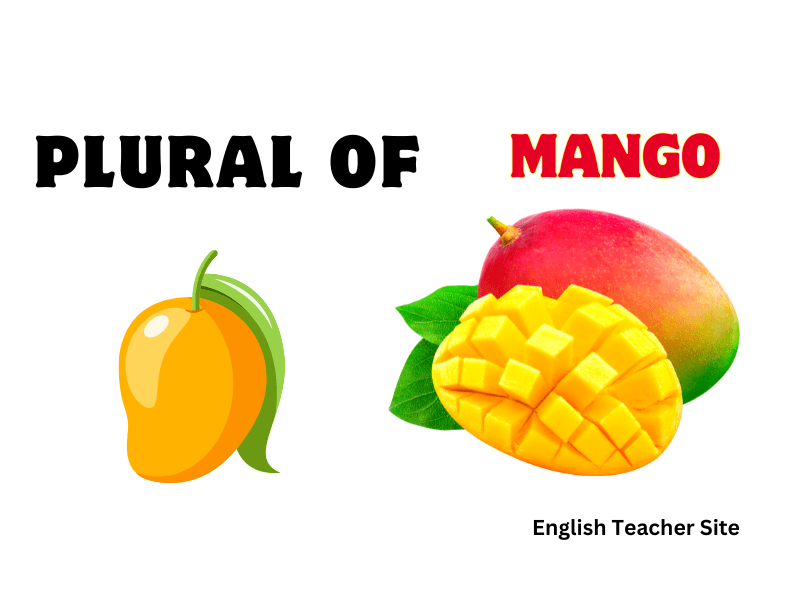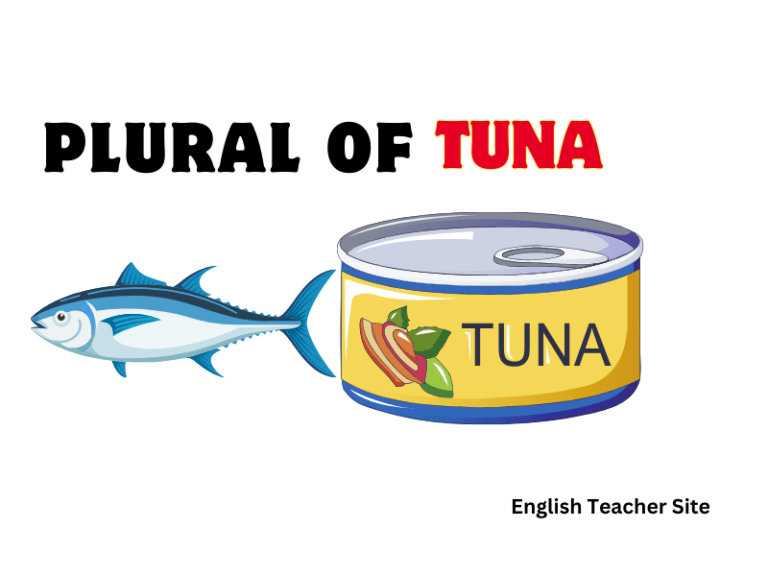What’s the Plural of Mango: Understanding Regular and Irregular Plurals

- Both “mangos” and “mangoes” are correct plurals for the noun “mango.”
- The choice between “mangos” or “mangoes” can be influenced by regional spelling preferences.
- The origin of the word “mango” is from the Portuguese “manga,” which was derived from the Malayalam “māṅṅa.”
When discussing the plural of “mango,” it’s important to note that English has a general rule for pluralizing nouns that end with “o.” Some nouns will simply add an “s,” while others receive an “es” at the end. This rule, however, is not without its exceptions, and “mango” fits into this ambiguous category. The word “mango” comes from the Portuguese term “manga,” which itself originated from the Malayalam word “māṅṅa.” Over time, English adopted and adapted the term, leading to the present confusion over its plural form.
What’s the Plural of “Mango”?
Common Plural Forms of “Mango”:
| Singular | Plural Option 1 | Plural Option 2 |
|---|---|---|
| mango | mangos | mangoes |
Certain style guides and dictionaries may prefer one form over the other, but both “mangos” and “mangoes” are considered correct. For instance, American English tends to favor the shorter version, “mangos,” while other varieties, such as British English, might use “mangoes” more frequently.
To understand the pluralization in context, consider the following points:
- The usage can vary depending on regional preferences, style guides, and individual choice.
- The Merriam-Webster dictionary accepts both “mangos” and “mangoes” as correct plurals.
- Publications like GrammarBook.com discuss this variability in American English and suggest that “mangos” might be the more common usage in the United States.
Examples in Sentences:
- I bought five mangos at the grocery store.
- The basket was full of ripe mangoes.
“Mangos” or “Mangoes” – Which is Correct?
Both terms are used to refer to more than one mango, and their usage may vary by region.
- “Mangos”
- “Mangoes”
| “Mangos” | “Mangoes” |
|---|---|
| Common in British and some American regions | Preferred in American English |
| Accepted by major dictionaries | Also accepted by major dictionaries |
| Considered informal by some language purists | Often deemed as more traditional |
| Can be found in usage across English-speaking regions | Recommended for formal writing |
- Utilize “mangos” or “mangoes” based on the style guide you are following
- Ensure consistency in the term you select throughout your writing
The insistence on “mangoes” over “mangos” in some quarters can be traced to a wider pattern in English where nouns ending in the letter “o” acquire an “es” in their plural form (e.g., “heroes,” “potatoes”).
To maintain credibility and professionalism in writing, choose the variation that aligns with your audience’s expectations and the prevailing standards of the publications or institutions for which you are writing.
Defining “Mangoes”
Term mango refers to both the stone fruit known for its sweet, tropical flavor and the tree, Mangifera indica, that produces this fruit. This flavorful addition to cuisines around the world has a plural form that often causes confusion.
Consider the pluralization behavior of similar nouns:
| Singular | Plural With ‘es’ | Plural With ‘s’ |
|---|---|---|
| hero | heroes | – |
| tomato | tomatoes | – |
| mango | mangoes | mangos |
Here are other examples:
- Echo: echoes / echos
- Potato: potatoes / potatos
- Tornado: tornadoes / tornados
Nouns Ending in –o
The rule for creating plurals for these nouns sometimes requires simply adding an “s”, or in some cases, requires adding “es”.
Common Patterns:
Nouns ending with a vowel + “o” typically receive just an “s” to form the plural.
- Example: studios → studios
Nouns with a consonant before the final “o” might take “es” for the plural.
- Example: heroes → heroes
Notably, there are exceptions to these patterns.
Table 1: Plurals for Nouns Ending in Vowel + ‘o’
| Singular | Plural |
|---|---|
| video | videos |
| radio | radios |
| patio | patios |
Table 2: Standard Plural Formation
| Singular | Plural |
|---|---|
| mango | mangoes |
| volcano | volcanoes |
| taco | tacos |
Exceptions to the Rule:
Some nouns ending in “o” can have two correct plural forms:
- Mango: Both mangos and mangoes are acceptable.
- Cargo: Same applies – cargos and cargoes can be used interchangeably.
Usage in Sentences:
- The shelves were stacked with various painting supplies and canvases.
- During the recital, the pianist skillfully transitioned between multiple pianos.
Examples of “Mango” Used in Context
Singular Use of “Mango”:
- She prefers a ripe mango to an apple.
- The recipe calls for one large mango, diced and peeled.
- A mango contains various vitamins and minerals.
Plural Use of “Mango”:
- They bought several mangos/mangoes at the market.
- Mangos/Mangoes are known for their vibrant color and sweet taste.
Here are two tables illustrating sentences with the singular and plural forms of “mango”:
| Singular Form | Sentence Example |
|---|---|
| Mango | He sliced the mango for the fruit salad. |
| Mango | The smoothie requires one small mango. |
| Plural Form | Sentence Example |
|---|---|
| Mangos/Mangoes | They prepared bowls filled with cut mangos/mangoes. |
| Mangos/Mangoes | Mangos/Mangoes were on sale, so they purchased a dozen. |
Examples of “Mangoes” Used in Context
| Context | Example Sentence |
|---|---|
| Describing Quantity | “She bought two dozen mangoes from the market.” |
| Referring to Varieties | “Different types of mangoes have unique flavors.” |
| In Culinary Recipes | “The recipe calls for three ripe mangoes.” |
| As a Favorite Fruit | “Out of all the fruits, he loves mangoes the most.” |
When conveying the presence of more than one mango, “mangoes” serves as the subject or object within a sentence:
- In discussions about nutrition, one might say “Mangoes are a rich source of vitamin C.”
- A grocer may advertise, “Fresh mangoes on sale today!”
Origin of the Word “Mango”
The term originated in the 16th century, tracing back to the Portuguese word manga. This, in turn, was borrowed from the Malay word mangga, which ultimately finds roots in Tamil language — a Dravidian language spoken by the Tamil people of India and Sri Lanka.
| Mango Origin | Description |
|---|---|
| Portuguese | Manga |
| Malay | Mangga |
| Tamil | man (mango tree) + kay (unripe fruit) |
Tamil influence can be seen as it combines the words for “mango tree” (man) and “fruit” (kay), painting a clear picture of the fruit we now relish. The consensus on the plural form of mango bears resemblance to other English plurals ending in “o”, adopting an “e” in some instances to form “mangoes” while also accepting the simpler “mangos.”
- Etymological Path of Mango:
- From Tamil: A convergence of the words for “tree” and “fruit,” signifying the origin.
- Through Malay: An adaptation as mangga, reflecting linguistic exchange.
- To Portuguese: Incorporation as manga, showing the spread through exploration.
- Into English: Final adoption and pluralization as mangoes or mangos.
The plural forms—mangoes and mangos—demonstrate the English language’s flexibility and the influence of etymological history on modern spelling conventions.
| Mango Plural Forms | Usage |
|---|---|
| Mangoes | More commonly used |
| Mangos | Also accepted |
Through centuries, the word mango has reflected the accumulated history of cultural interactions and linguistic adaptations. Its simplicity in form belies a complex heritage that spans continents and languages, encapsulating globalization in a single fruit’s name.
Sources
My name is Khamis Maiouf. I am the creator of the English Teacher Site, dedicated to providing valuable resources and insights for students around the world. With a passion for education and a commitment to helping students enhance their skills, I aim to make English teaching more effective and enjoyable for both educators and students.






